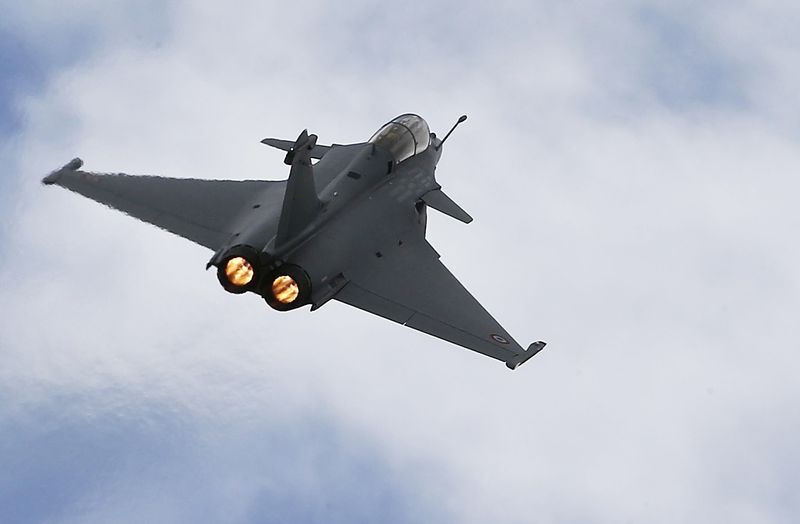By Cyril Altmeyer
GENEVA (Reuters) - Dassault Aviation (PA:AVMD) will double production of its Rafale combat jet within two to three years of the completion of a planned sale to India, its chief executive said on Monday.
The maker of combat and business jets is also in talks on potential fighter sales with several other countries including Malaysia, after recently winning its first export contracts for the Rafale with Egypt and Qatar, CEO Eric Trappier added.
He was speaking to Reuters at the EBACE business jet exhibition outside Geneva.
Trappier last week said Dassault would increase production of the Rafale if it signs a third export contract but it did not give a timeframe.
It currently produces 11 Rafales a year.
Trappier said it would be feasible to lift output as high as 2.5 aircraft a month in order to meet future export demand.
India has pledged to order 36 of the planes directly from the French government after talks stalled with Dassault over a larger deal.
Dassault said he hoped the govenment-to-government contract would be finalised this year, adding: "Once the India contract is signed we will double production in two to three years."
Trappier also signalled a period of stability at French defence firm Thales, which has been disrupted by a series of management changes.
Last week, Thales confirmed the company's chief executive and temporary chairman Patrice Caine in the combined roles of CEO and chairman after former utilities chief Henri Proglio refused to accept the chairmanship.
Trappier said there were no plans to revert to the previous proposal of splitting the two roles, which had been designed to reconcile differences between core shareholders Dassault and the French government over who should run Thales.
Trappier also said Dassault intends to remain a shareholder in Thales for the long term, but does not seek a majority stake, something that would require a new shareholder pact.
"The less we talk to the government, the better things go as far as that subject is concerned," he said.

Dassault owns 25.3 percent of Europe's largest defence electronics group and has a shareholder pact with the French government, which owns 26.4 percent.